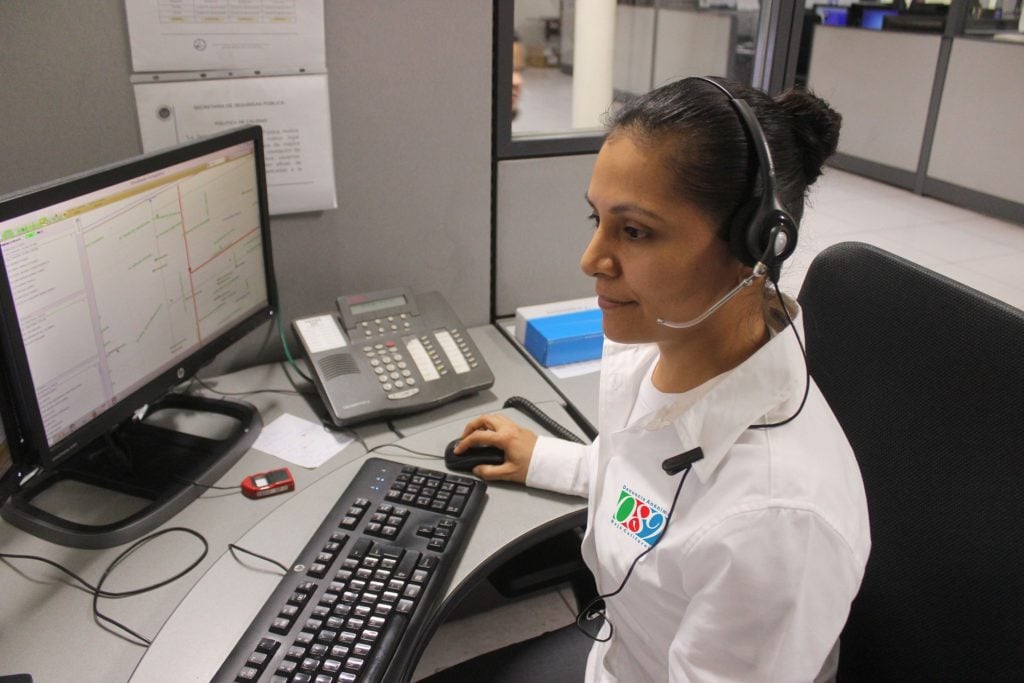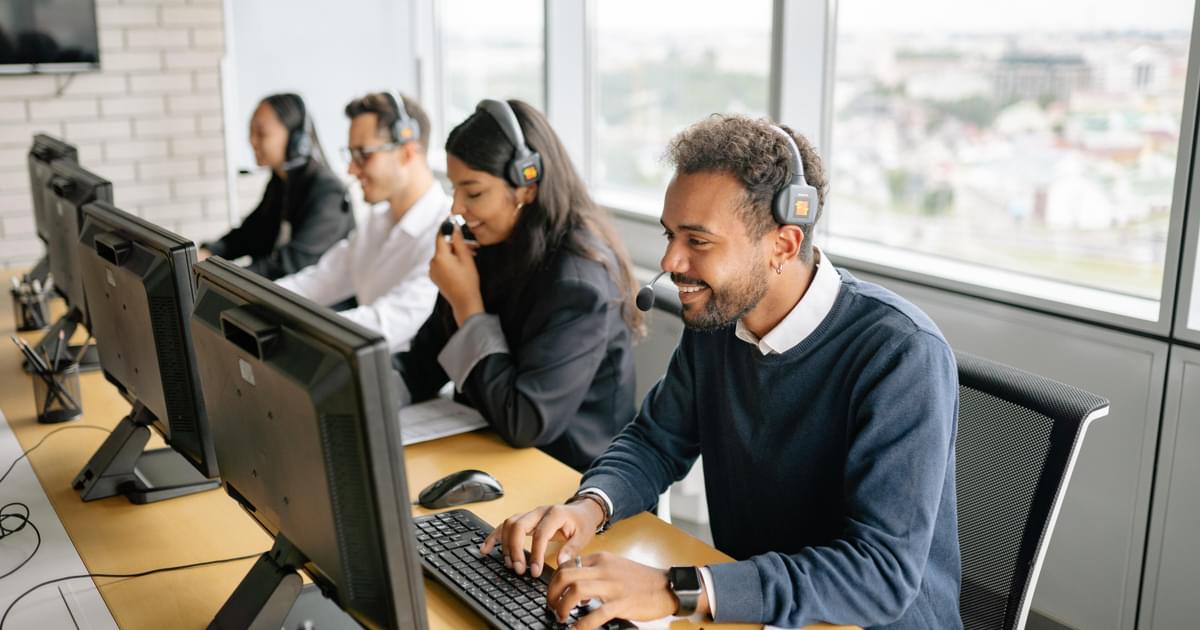All Categories
Featured
Table of Contents
- – What Is The Best 12 Best Telephone Answering Se...
- – What's The Best Call Answering & Reception Ser...
- – Which Is Best What Is An Answering Service And...
- – Best A Complete Guide For Using Automated Ans...
- – What's The Best How To Start An Answering Ser...
- – Which Is The Best Call Answering Service
What Is The Best 12 Best Telephone Answering Service For Businesses In ... On The Market Now
This gadget and its followers were designed by Sava Jacobson, an electrical engineer with a personal consulting company. While early answering devices utilized magnetic tape innovation, the majority of contemporary equipment utilizes strong state memory storage; some devices use a combination of both, with a solid-state circuit for the outgoing message and a cassette for the inbound messages.
"toll saving" listed below) (virtual answering service). This is useful if the owner is evaluating calls and does not want to talk with all callers. In any case after going, the calling celebration should be informed about the call having been responded to (most of the times this starts the charging), either by some remark of the operator, or by some welcoming message of the TAD, or dealt with to non-human callers (e.
This holds particularly for the Littles with digitally saved welcoming messages or for earlier devices (before the increase of microcassettes) with a special limitless loop tape, different from a second cassette, dedicated to recording. There have actually been answer-only devices with no recording capabilities, where the welcoming message needed to notify callers of a state of present unattainability, or e (virtual telephone answering service).
What's The Best Call Answering & Reception Services - Office Shed

about schedule hours. In tape-recording Little bits the welcoming usually consists of an invite to leave a message "after the beep". A voice mail that utilizes a microcassette to record messages On a dual-cassette answerphone, there is an outbound cassette, which after the defined number of rings plays a pre-recorded message to the caller.

Single-cassette answering makers include the outgoing message at the beginning of the tape and incoming messages on the remaining space. They first play the announcement, then fast-forward to the next offered area for recording, then tape the caller's message. If there are lots of previous messages, fast-forwarding through them can trigger a significant delay.
This beep is typically described in the welcoming message, asking for that the caller leave a message "after the beep". Little bits with digital storage for the taped messages do not show this hold-up, of course. A little may offer a push-button control center, where the answerphone owner can ring the house number and, by going into a code on the remote telephone's keypad, can listen to recorded messages, or erase them, even when far from home.
Which Is Best What Is An Answering Service And Why Use One? Lg Or Whirlpool

Thus the maker increases the variety of rings after which it addresses the call (usually by two, leading to four rings), if no unread messages are currently kept, however responses after the set number of rings (generally 2) if there are unread messages. This permits the owner to discover whether there are messages waiting; if there are none, the owner can hang up the phone on the, e.
Some machines likewise enable themselves to be from another location activated, if they have been turned off, by calling and letting the phone ring a certain big number of times (typically 10-15). Some company desert calls currently after a smaller number of rings, making remote activation impossible. In the early days of Littles an unique transmitter for DTMF tones (dual-tone multi-frequency signalling) was regionally required for push-button control, because the formerly used pulse dialling is not apt to communicate proper signalling along an active connection, and the dual-tone multi-frequency signalling was carried out step-by-step.
Any inbound call is not identifiable with regard to these homes in advance of going "off hook" by the terminal equipment. So after going off hook the calls need to be switched to proper devices and just the voice-type is immediately available to a human, however possibly, however should be routed to a LITTLE (e.
Best A Complete Guide For Using Automated Answering Systems Prices Near Me
What if I told you that you do not have to actually choose up your gadget when answering a consumer call? Someone else will. So practical, best? Responding to call doesn't require somebody to be on the other end of the line. Effective automated phone systems can do the trick just as effectively as a live agent and sometimes even better.
An automatic answering service or interactive voice action system is a phone system that communicates with callers without a live individual on the line - business call answering service. When companies utilize this innovation, clients can get the answer to a concern about your company simply by utilizing interactions set up on a pre-programmed call circulation.
Although live operators update the customer service experience, numerous calls do not require human interaction. A simple recorded message or directions on how a customer can retrieve a piece of details typically resolves a caller's instant requirement - telephone answering service. Automated answering services are a simple and reliable way to direct inbound calls to the best person.
What's The Best How To Start An Answering Service Business
Notice that when you call a company, either for assistance or product inquiry, the first thing you will hear is a pre-recorded voice greeting and a series of alternatives like press 1 for customer service, press 2 for inquiries, and so on. The pre-recorded options branch out to other choices depending upon the client's choice.
The phone tree system assists direct callers to the right individual or department utilizing the keypad on a cellphone. In some circumstances, callers can use their voices. It's worth noting that auto-attendant alternatives aren't restricted to the 10 numbers on a phone's keypad. As soon as the caller has actually picked their first alternative, you can create a multi-level auto-attendant that utilizes sub-menus to direct the caller to the ideal type of assistance.
The caller does not need to interact with an individual if the auto-attendant phone system can handle their issue. The automated service can path callers to a worker if they reach a "dead end" and need assistance from a live representative. It is costly to work with an operator or executive assistant.
Which Is The Best Call Answering Service
Automated answering services, on the other hand, are considerably cheaper and provide considerable cost savings at approximately $200-$420/month. Even if you don't have committed staff to deal with call routing and management, an automated answering service enhances performance by allowing your group to focus on their strengths so they can more effectively spend their time on the phone.
A sales lead routed to customer care is a lost shot. If a consumer who has product questions reaches the wrong department or receives incomplete responses from well-meaning staff members who are less trained to manage a specific kind of question, it can be a cause of aggravation and dissatisfaction. An automatic answering system can minimize the number of misrouted calls, therefore helping your employees make much better usage of their phone time while freeing up time in their calendar for other tasks.
With Automated Answering Systems, you can create a tailored experience for both your personnel and your callers. Make a recording of your primary welcoming, and just update it routinely to reflect what is going on in your company. You can develop as lots of departments or menu options as you desire.
Table of Contents
- – What Is The Best 12 Best Telephone Answering Se...
- – What's The Best Call Answering & Reception Ser...
- – Which Is Best What Is An Answering Service And...
- – Best A Complete Guide For Using Automated Ans...
- – What's The Best How To Start An Answering Ser...
- – Which Is The Best Call Answering Service
Latest Posts
Professional Answering Service – WA
Expert Business Phone Answering Services Near Me
Effective Real Estate Answering Service
More
Latest Posts
Professional Answering Service – WA
Expert Business Phone Answering Services Near Me
Effective Real Estate Answering Service